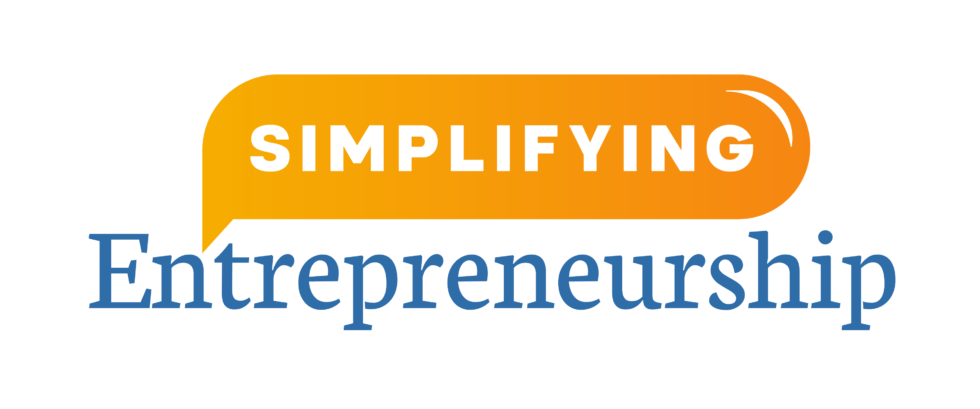Most entrepreneurs understand they need to “niche down,” i.e. figure out who’s in their target audience and how you can serve their needs. As the saying goes, if you appeal to everyone, you appeal to no one.
But niching down is more than narrowing down your market and value proposition. It also means not biting off more than you can chew. Entrepreneurs are passionate people, so it’s natural for us to want to make their clients as happy as possible. Therefore, we tend to add on a bunch of services to appease our target market. Selling suspension-training gear? You may as well offer fitness classes, pain-relieving ointments, and workout gear. After all, your target audience needs all of that, right?
Yes…but not from you. If you go too big, you’ll find it hard to hit your stride — and even harder to keep your customers and team members on track. Specialization is always more marketable and sustainable than generic products and services. So, how can you avoid kitchen-sink entrepreneurship and set up your business for success?
The Goldilocks Zone: Too Much vs. Just Right

The main problem with the kitchen-sink approach is that you can’t determine the value of your offering. Therefore, you tend to price it based on materials and expenses rather than the specific benefits your work would provide.
Here’s a story I’ve heard of a newbie web developer. An acquaintance approached him to build a portfolio website. “How much would it be?” they asked. The developer thought about it. Coding would take 5 hours, SEO would take 2 hours, writing the content would take 3 hours, and putting it all together would take another 2 hours. Their country’s living wage of $20/hour would suffice, right?
“How’s $300?” They replied, thinking they’d earn a nice profit of $60.
“Wow, that’s really expensive,” said the prospective client. “I guess I’ll just do it myself.”
Do you see the problem here? The web developer tried so hard to make their prospect happy that they stepped outside their skill set and comfort zone. They offered SEO, writing, and content management when all they had to offer was coding — a valuable skill for sure! They also quoted a price that solely encompassed their time, and the client noticed that. If all you’re offering is time and equipment, people will happily find ways to get those for cheaper.
The kitchen-sink approach leads us to devalue ourselves. As entrepreneurs, we’re selling more than our time — we’re selling a better existence to our prospects. That client would have easily handed over the money if the developer had clearly proven that they can deliver an exceptionally built, responsive, and user-friendly website that generated revenue. Who wouldn’t cough up big bucks for that?
But pitch it as a general suite of services priced for your time, and the solution is clear: your clients can just DIY it. They don’t see the benefit of hiring you to do it.
So the question you should be answering is, what are the tasks for which you can justifiably charge $1000/hour? Those should make up your business’s core offerings.
Specificity = Accountability
If you purport to do everything, it instantly becomes much more difficult to track your deliverables and performance. Accountability is more than a measure of integrity — it’s how you show up every day for yourself as well as your clients. That’s hard to do when you’re following a kitchen-sink approach. Did your team show up for all the value you promised, or just for the tasks they’re best at?
Team members who feel stretched too thin are less likely to (a) be productive (b) be transparent about their work and (c) feel confident about their performance. Accountability isn’t just a matter of documenting your work for your clients; it’s also a method for empowering your team and helping them align their motivation with your company’s goals. To do that, be specific in your scope. Some red flags to avoid:
Wrapping Up
In this gig economy, specialists are quickly cropping up to meet consumer demand. If you reluctantly offer SEO services along with your web development, clients will quickly find someone a bit more confident (and affordable) in their skills. It’s okay to offer a diverse set of services, as long as your team has the confidence to back it up! Otherwise, the kitchen-sink approach leaves you looking opportunistic and inauthentic while your team struggles to manage their workload.
It’s always better to be specific. That’s a key part of niching down: you’re offering super-valuable skills to a well-defined audience. Hit that sweet spot rather than casting a wide net! Compete on value and pain points, not price or broad demographics. With that in mind, koi can better serve your audience and scale up your business.
This article was loosely based on an episode of the Simplifying Entrepreneurship Podcast with my guest Richard Hill. Here’s our full interview on youtube:




0 Comments